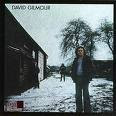 A few weeks ago, Cuban leader Fidel Castro announced that he was stepping down from the day to day running of Cuba. I had some thoughts on it.
A few weeks ago, Cuban leader Fidel Castro announced that he was stepping down from the day to day running of Cuba. I had some thoughts on it.In 1981, I was a sophmore transfer at Eastern Illinois University. I had to take a Political Science class. I was instantly smitten; I eventually realized I loved Political Science so much that I got both my Bachelor's and Master's in it.
The very first paper I ever had to write for that first Political Science class was on Cuba. Specifically, on Cuban economics. I chose the subject because I'd long been interested in Cuba. It formed the backdrop of my early life. A couple of weeks before I was born, a U.S.-supported invasion of Cuban exiles at the Bay of Pigs, a notorious fiasco, occurred. Then, when I was a little over a year old, the Cuban Missle Crisis occurred, in October of 1962. This was, most historians would agree, without a doubt the closest the superpowers, the United States and the Soviet Union, came to an all-out war. Cuba has had, for it's size and population, a disproportionate influence on the history of the last 50 years.
A few months ago, my son and I were talking about politics and history, as we frequently do, and about how there arise people in history that believe that they are absolutely entitled to lead. Those people are, for the most part, bad for their country. Tito of Yugoslavia, a Stalinist dictator, was possibly a rare exception to this; he began to look like an absolute genius as Yugoslavia disintegrated after his death into the first genocide Europe had seen since World War II.
I've often wondered, I told my son, what it would have been like if Hitler had been captured alive and tried for his crimes. In the last few years, I told him, we've actually gotten to see a little of that: the trials of Slobodan Milosevic of Serbia, Saddam Hussein of Iraq and Charles Taylor of Liberia. All three men were (or are, in Taylor's case) like the Nazi war criminals that were tried after World War II: sullen, defiant, telling the court that they had no jurisdiction over them.
My son replied that Castro would never have acted like that. I had to correct him; Castro had already acted like that.
In 1953 Castro led an assault on the Cuban military's barracks at Moncada. This raid was an unmitigated disaster, leading to the capture or death of every single member of Castro's group. Castro himself was captured.
For some reason, the regime decided to try Castro for the plot, rather than summarily execute him, as it had done with many of the other captives. Not surprisingly, Castro was found guilty. As he was an attorney, he was allowed to serve in his own defense. His four hour closing statement, on October 16, 1953, has become perhaps the most famous speech of a man famous for his long-winded speeches. It's come to be know as the "History Will Absolve Me" speech.
When I first got internet access, the very first thing I did was to download this speech. I'd long heard about it, as a student of history. It stands as one of the great pieces of oratory, political theater, and, well, chutzpah in history. Castro knew he was about to be found guilty and sentenced to prison. Yet he stood there for four hours and berated the judges, the judicial system and the political system that was about to find him guilty.
Castro was released in a general amnesty of political prisoners and a few years later, he led a group of a few dozen men in a small ship called the Granma to the shores of Cuba. Within hours, most of them were killed or captured. A handful of men, including Castro, managed to evade capture and made it to the Sierra Mastre mountains.
In the great biography of Castro, the late New York Times correspondent Tad Szulc's Fidel, there is a great account of those couple of days in the sugar cane when the handful of survivors evaded the murderous soldiers of the Batista dictaorship. As they lay in the baking sun, sucking on sugar cane for water and sustenance, Castro had a running monologue the whole time, urging them on, persuading them that the victory of the revolution was just around the corner. And this set the tone for Castro.
In his speeches over Radio Marti from the Sierra Mastre mountains, he kept the dialogue with the Cuban people running. After the revolution, this continued, as he appeared on Cuban radio and television in 5, 6 and eight-hour speeches to the Cuban people.
 It is, I think, impossible to understand Castro without knowing something about his right-hand man in the Cuban revolution, Argentinean revolutionary Ernesto "Che" Guevara.
It is, I think, impossible to understand Castro without knowing something about his right-hand man in the Cuban revolution, Argentinean revolutionary Ernesto "Che" Guevara.Che met Castro in Mexico City in the 1950's. Che, had been a member of the reformist Arbenz government in Guatemala, This experience was a pivotal one in his life, and is key, I think, to understanding the Cuban Revolution.
Che watched as a small band of right-wing capitalists, backed by a small number of mercenaries-- and with the help of the CIA-- were able to overthrow the much greater number of democrats and socialists in Guatemala through control of the radio and newspapers. Later, after the success of the Cuban revolution, he was Castro's hatchet man. He personally had many people put to death. It's estimated that he had 5,000 people executed in the couple of years after the revolution, some for infractions as small as passing out pamphlets.
The hold Castro took over Cuba, with the help of Che and others, was absolute. With that power he did some good things; the Cuban education and health systems are excellent. My ex-wife, who grew up in Havana, recalled that she got innoculations and doctor visits all the time. Yet, he failed in spectacular ways. In that first paper I wrote, I documented disasterous economic plans that left Cuba time and again failing to get away from the monocrop colonial export model. The Soviet Union procured Cuba's alliance by trading its plentiful petroleum at inflated prices for Cuba's sugar. The Soviet Union heavily subsized Cuba's economy for years.
After the collapse of the Soviet Union in 1991, many expected Castro's regime to follow. Yet, they've limped along. Most of the world, defying the United States' bizarre refusal to end the economic embargo in Cuba, has invested heavily in Cuba as a tourist destination. This has not, however, been enough to save Cuba from poverty. Many women, educated women, have to resort to prostitution to survive.
Yet, in judging Castro's success or failure, one must also look at other Latino countries. Cuba has not suffered the massive killings that Guatemala suffered. The quality of life compares favorably to every other Carribean country, and probably to most poor rural and urban areas of the United States.
One thing that gets little mention is the fact that it was the defeat of the South African army in a proxy war in Namibia, largely by Cuban troops, in the late eighties that began the end of Apartheid in South Africa. Cuba sent doctors and teachers throughout Africa and Latin America. In the vaunted 1983 US invasion of tiny Grenada, most of the Cuban "soldiers" were construction workers there to build an airport so that Grenada could build up a tourist trade. The idea that the runways were to be used to land communist jets to export invasion and revolution into Latin America were figments of the Reagan administration's imagination.
In his classic book, "Political Order in Changing Societies," Samuel Huntington lists a number of strategies a leader of a developing country, or a "Third World" country, as we called them in the old days, can stay in power. It was, I've always thought, the modern version of Macchiavelli's "The Prince." The imperative, in both books, was not change, not improving your country, but staying in power.
Castro has kept Cuba from brutal disaster. He has also kept it from growing up. He's been a genius at keeping power. I sometimes wonder what decisions I would have made were I have been in his shoes. He's often made decisions that to me were bad politically or economically. Then again, I've made decisions that were disasterous for me personally. What the hell do I know.
In the end, the model that may apply is one from Spain, where Castro's father was from: the caudillo-- the Spanish godfather.
The village caudillo had power, but ostensibly used it justly (though this was often a myth). Interestingly, the Spanish dictator Franco and Castro's father were from villages near one another in Spain. The caudillo tradition was well entrenched there.
But Castro has stepped down, nominally, at least, from the day to day power in Cuba. In his place, he's left his brother Raul, absolutely loyal to him, but a mediocrity. And nearly as old as he is.
I have to say that I never expected Castro to step down voluntarily. He clearly thought that he had a mission, a right to be in power. But then again, so does every other person who tries to attain power, whether it be through the ballot or bullet.
To me, it's too early to judge Castro. I definitely have both accolades-- Cuba was not a horrific charnel house like Guatemala, El Salvador or Honduras-- and I have severe criticism. My first wife's father, an artist and dissident, spent years as a political prisoner in Cuba. He was released and made it to the United States, but was and is a broken man. And Castro seems to have a complete inability to understand economics, or at least has a Machiavellian tendency to ignore economics in favor of political considerations.
History is a funny thing. Men and women who are leaders may look good at the time, but look bad in retrospect. And vice versa. It's hard to tell, in the crucible of the times, who is really doing a good or bad job. In the end, time tells. And I believe it will be some time before we can tell whether history absolves Castro.









































